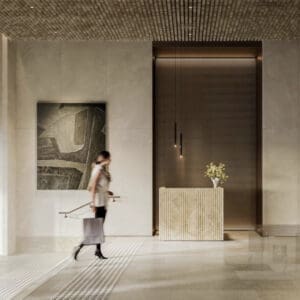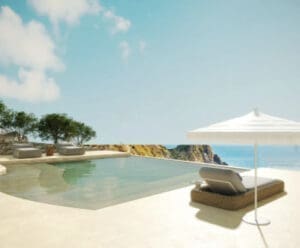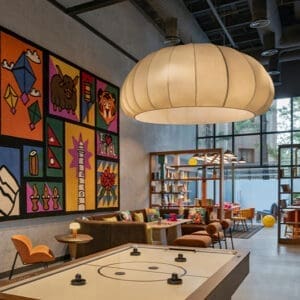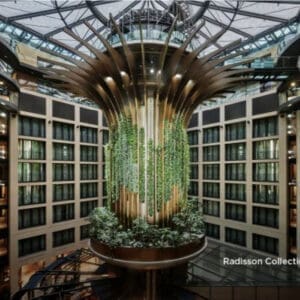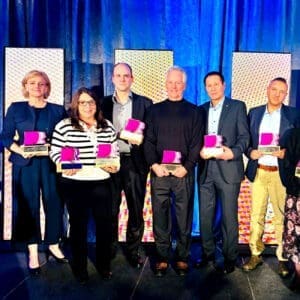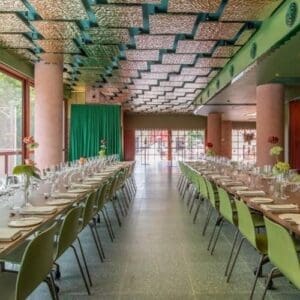Swissôtel Hotels & Resorts has released its latest Sustainability Report, a multi-year update outlining achievements in design, environmental responsibility, community relations, partnerships, and awards and certifications. Since the launch of its inaugural Sustainability Report published in 2012, Swissôtel’s global portfolio has seen notable declines in energy consumption, CO2 emissions and water consumption (27 per cent, 25 per cent and 18 per cent, respectively); and a continued commitment to certification in Quality, Health & Safety, Environment and Food Safety as part of the International Organization for Standardization (ISO).

Since its inception, Swissôtel’s sustainability strategy has focused on “Designing for Future”. This insights-led approach to intelligent, sustainable hotel design considers business and operational objectives, and the needs of guests, colleagues and society. This design philosophy focuses not only on look and feel – but also function and comfort to offer Swissôtel guests “Quality in Life” through modern, clean, reliable and practical offerings that align with existing habits and a commitment to exceed guest expectations.
“Our research shows that up to 50 per cent of guest satisfaction is influenced by the physical attributes of a hotel; however, an enormous amount of energy, materials and resources are required for building, operating and renovating our properties,” said Lilian Roten, vice-president Swissôtel Brand. “Through our dedicated commitment and ongoing implementation of innovative sustainable practices, we have seen incredible success in reducing our overall environmental footprint, while maintaining the high-end and contemporary touches our guests have come to expect from our brand.”
The latest version of the Sustainability Report also showcases Swissôtel’s energy consumption reduction program, including low-energy lighting, laundry reduction, team-member awareness training, and the purchase of green energy to power 74 per cent of its hotels and resorts. Additional successes, tracked since the full Sustainability Report was published in 2012, include an increase in colleague engagement (up 12 per cent) and an overall decrease in work related injuries (down 19 per cent).
Designing for the future
Swissôtel Zürich began extensive renovations in 2011, starting with the refurbishment of the main restaurant Le Muh, followed by the hotel’s lobby (2013-2014) and upcoming refurbishments to guestrooms (starting in 2016). At the same time, the hotel went through an entire back-of-house overhaul to reduce its environmental impact. Lifecycle assessment methodology, used in conjunction with environmental key performance indicators, enabled the hotel to benchmark against other properties and best available technologies. By substituting oil with district heating, a system that takes heat generated by the local waste treatment plant, Swissôtel Zürich was able to adjust its temperature controls and reduce CO2 emissions by 87.9 per cent. The property has also seen a reduction in electricity and heat consumption (6.1 & 4.2 per cent respectively) by implementing a heat recovery system with air handling units for guestrooms.
This holistic approach to sustainable design is a long-term strategy that is being applied across the Swissôtel portfolio and all new construction and renovations globally. For example, the sophisticated new Signature Rooms and Suites at the Swissôtel Sydney were coupled with a waste improvement program that resulted in a 21 per cent decrease in waste production and a 22 per cent increase in recycling. And the opening of Swissôtel The Bosphorus’ west wing, the first stage of a stunning renovation for the Istanbul-based property, saw the installation of a grey water project to ionize waste water from pools, kitchens, baths and showers.
“We are advocates for design that complements aesthetic with meaningful innovation and sustainability in practice,” states Roten. “And by adhering to this principal and focusing on well-being and quality of life through our unique Vitality programme, Swissôtel has seen consistently positive guest feedback worldwide.”
About Sustainability Report 2012-2014
This update on sustainability at Swissôtel Hotels & Resorts covers the years 2012, 2013 and 2014. It is an update of the full Sustainability Report published in 2012 and highlights key focus areas of the brand. It is based on a materiality assessment conducted in 2015 in line with GRI reporting standards, industry best practices and emerging trends. Updated performance data from previous years is included to provide greater historical context.
Several case studies and highlights reflect the engagement of local teams. Performance data and KPIs are collected monthly and annually using Swissôtel’s online performance management tool SERAM and are verified by both internal and external auditors. This update provides a fair and accurate representation of Swissôtel’s sustainability performance. To view the full report, please visit: swissotel-sustainability.com.




